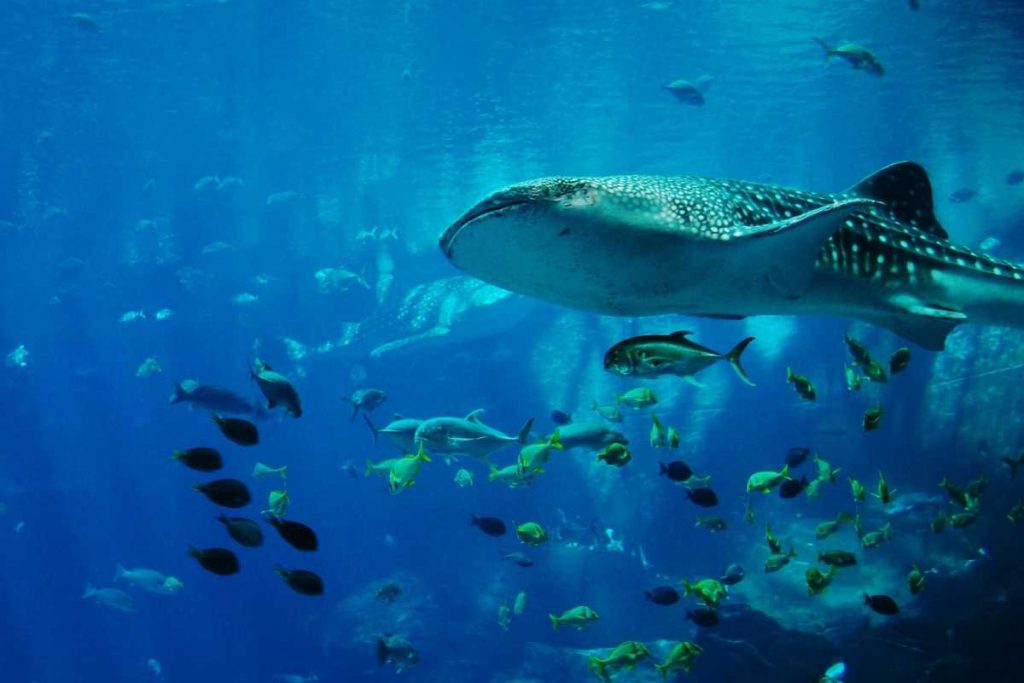Learn about the work the Carlos Slim Foundation does for the conservation of the Whale Shark
The whale shark, which can reach measurements of between 10 and 12 meters long and weigh up to 34 tons, is considered the largest fish in the world; however, it is completely gentle and harmless to humans.
The importance of the Mexican Caribbean
In our country, officially the season for observing and swimming with the whale sharks in the Mexican Caribbean begins May 15 and ends September 17. It is an activity unique to the region, which allows you to swim with the largest fish in the world in one of the most important zones of aggregation for the species.
During the last 15 years, more than 1,115 different whale sharks have been reported in the Mexican Caribbean waters.
This majestic giant favors the Mexican Caribbean because the zone is rich in its main food, zooplankton. They are a group of small animals composed of, among other things, fish eggs which are the favorite dish of the whale sharks.

Experts estimate that whale sharks can ingest 2.5 to 12 kg of zooplankton per hour, and they can spend between 7 and 11 hours daily feeding. Therefore, just one whale shark can consume between 17 and 132 kg of food a day, depending on its size and the quantity of food available in the areas of aggregation.
In the presence of an ocean phenomenon called ‘upwelling’ -which promotes the flourishing of microscopic algae that provoke an increase in the quantity of the zooplankton-, which increases during the months of May to September, the Mexican Caribbean becomes ideal for the presence of the whale sharks.
Promoting and encouraging their protection
Because this majestic species is highly migratory, the feeding zones and the times dedicated to this activity are extremely important for the recovery and storage of energy that allows them to continue with their movement and complete their biological cycle.
This species has been considered endangered since 2016, according to the Red List of Threatened Species (IUCN). Therefore, August 30 is a day of reflection so that together we can contribute to and encourage sustainable tourist activity for the social, cultural and economic benefits that its presence brings to the localities that offer this unique tourist attraction.
In Mexico, Pronatura Península de Yucatán A. C., Centro de Investigación y de Estudios Avanzados of the IPN (CINVESTAV Mérida Unit) and the Comisión Nacional de Áreas Naturales Protegidas (National Commission of Protected Natural Areas) have collaborated for 15 years to generate information that helps us to learn about, value and protect this marvelous species, with the help of the WWF-Carlos Slim Foundation Alliance during the last 5 years.
The Carlos Slim Foundation, in alliance with the World Wildlife Fund (WWF) México, since 2008, launched a program for conservation of endangered or threatened species and their habitats in the Sea of Cortez and the Baja California Peninsula: large whales, dolphins, sharks and sea turtles.
The WWF-Carlos Slim Foundation Alliance works on a conservation program alongside the most recognized Mexican scientists: together they have promoted fishing practices that do not affect these species and that benefit the local fishermen and their families, who depend on these resources and play a key role in the sustainable use of the marine biodiversity.
With information from Kambul.


